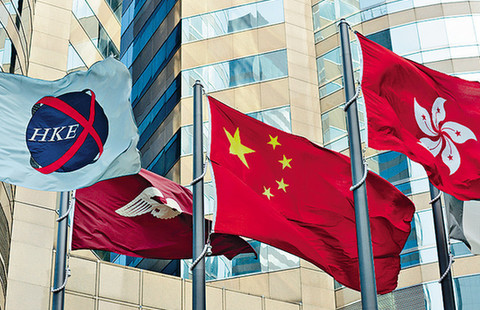Chinese e-commerce carnival going global
(Xinhua) Updated: 2014-11-04 08:30BEIJING -- With China's "Nov 11" online shopping frenzy around the corner, foreign brands are expected to play a bigger role as competition heats up for this year's digital shopping dash.
Widely recognized as "Singles' Day", a holiday celebrating the antithesis of Valentine's day, Nov 11 has become the country's biggest annual commercial holiday, breaking thousands of online sales records each year.
The holiday is so popular for online shopping it has earned the nickname "going broke day". Last year, more than 500 million Chinese online shoppers logged onto e-commerce websites to snag the heavy discounts on offer, leaving delivery companies overwhelmed in the process.
Alibaba, the country's largest e-commerce company and the original promoter of Singles' Day, recorded a 83 percent year-on-year increase on its two online platforms, Tmall.com and Taobao.com, last year, with sales registering at 35 billion yuan ($5.69 billion).
This year's "Nov 11" holiday is expected to see even bigger sales figures with easier access to foreign brands for online shoppers.
Alipay, a third-party payment platform recently derived from Alibaba, is launching its "EPass" service for US retailers such as Gilt.com, Gap and H&M.
EPass will be available to any US retailer interested in reaching the Chinese consumer, giving access to a multi-billion US dollar market, according to Alipay.
EPass aims to ease the "friction" of international purchases by eliminating the need to use credit cards, which typically increases the price of foreign products, Alipay's president Li Jingming said.
Meanwhile, the New Zealand Post Office has added a Chinese branch to its YouShop service, a week after launching a New Zealand store on Alibaba's Tmall Global website.
The YouShop service allows New Zealand shoppers to buy from offshore online stores that do not deliver to New Zealand or have high shipping charges.
Shoppers can ask for the goods to be delivered to a standardized offshore address from which New Zealand Post forwards them to New Zealand.
As a rival of Alibaba, Amazon announced on Oct 30 that Chinese shoppers can buy over 80 million kinds of foreign commodities from the United State, Germany, Spain, France, the Great Britain and Italy with Amazon's direct mail services.
Lu Zhenwang, CEO of a leading e-commerce consulting company, said while the cross-border business moves will help phase out smuggling, at the same time, they pose huge challenges for faster logistics and lower prices.
Chinese Premier Li Keqiang, who was speaking at a State Council meeting on Oct 29, stressed that supporting new industries and e-commerce was paramount to growth.
In fact, market competition for 2014's Singles' Day has already begun.
Media reported several Chinese e-commerce giants have received a notice that Alibaba had registered the trademark of "Nov 11", meaning it can only be used in Alibaba's Tmall.com.
Rivals of Alibaba like JD.com quickly changed the logo to "11.11" and responded, along with Chinese home appliance giant Suning, that Alibaba's move impaired market fairness.
|
 |
 |
| Forbidden City's Taobao store hot on the Internet | Top 10 richest women in China |
- Alibaba's first earnings to test mettle, investor enthusiasm
- MOF to sell 12b yuan in treasury bonds in HK
- Tianjin sees steady growth in foreign investment
- Realty firms see surge in 3rd quarter inventories
- Taobao girls pose for over 100 garments a day
- Sony to retain strong China presence despite moves to cut jobs
- Chinese e-commerce carnival going global
- 41% overseas firms positive about RMB
















